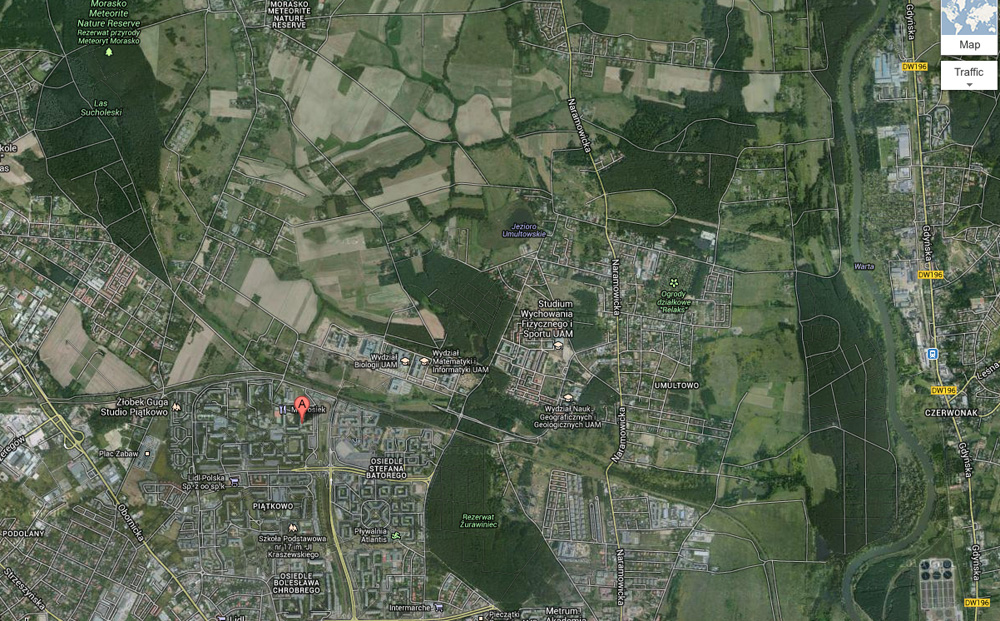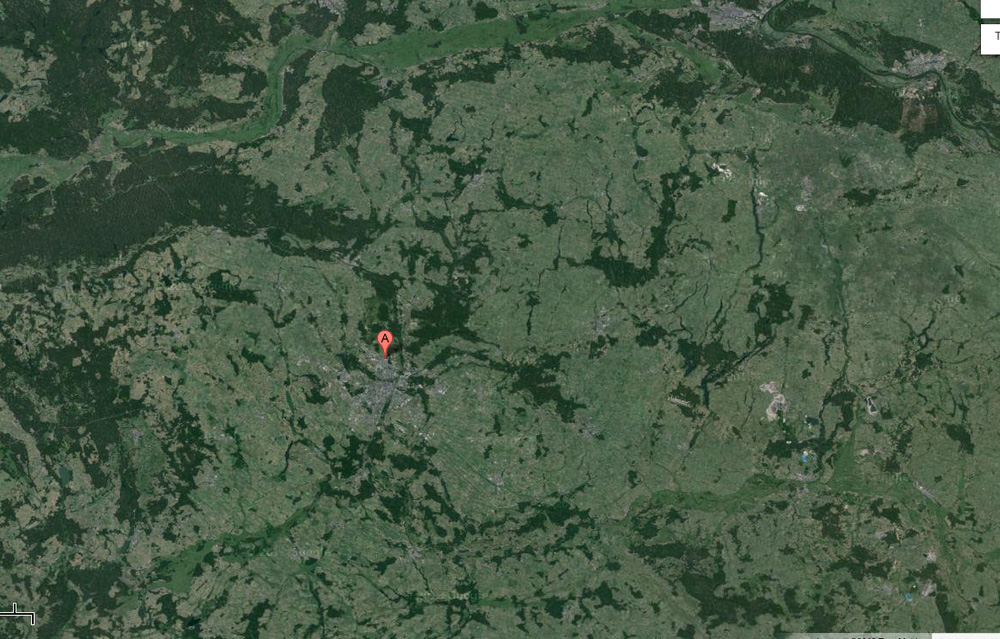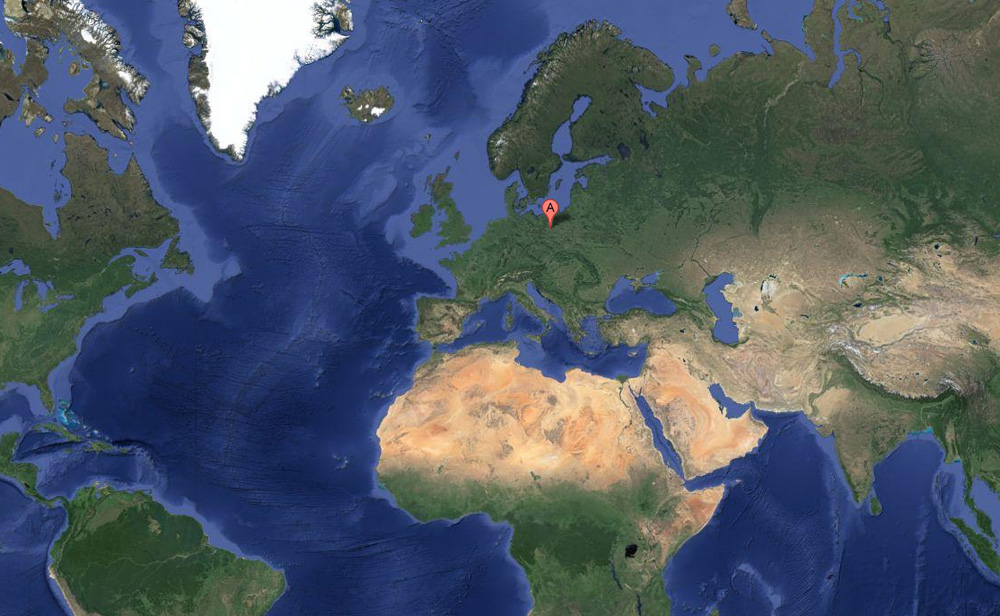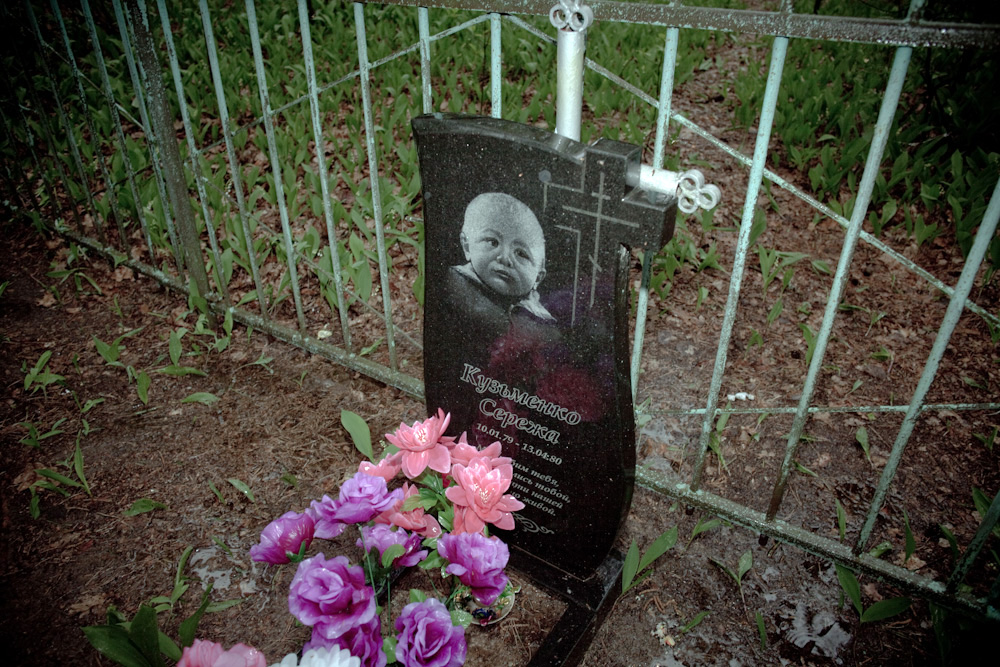Bez ruszania dupy z fotela, przewinięcie historii, cofnięcie do poczatków. Mój świat rozwijał się powoli. Pamiętam kiedy granice wyznaczało podwórko, krzaki, betonowa ścieżka, stara chata, jeszcze ocalała pozostałość wiejskiej warstwy historii tego kraju, ostatni bastion otoczony komunistycznymi blokami. Google Earth już tego nie pokaże.
***
Without moving my ass from computer desk, history rewinded, back to the roots. My world developed slowly. I remember when its borders were marked by basketball court, bushes, concrete path, and old cottage, still remaining at that time reminder of peasant layer of history of this country, last bastion surrounded by communist blocks. You will not see it on Google Earth anymore…
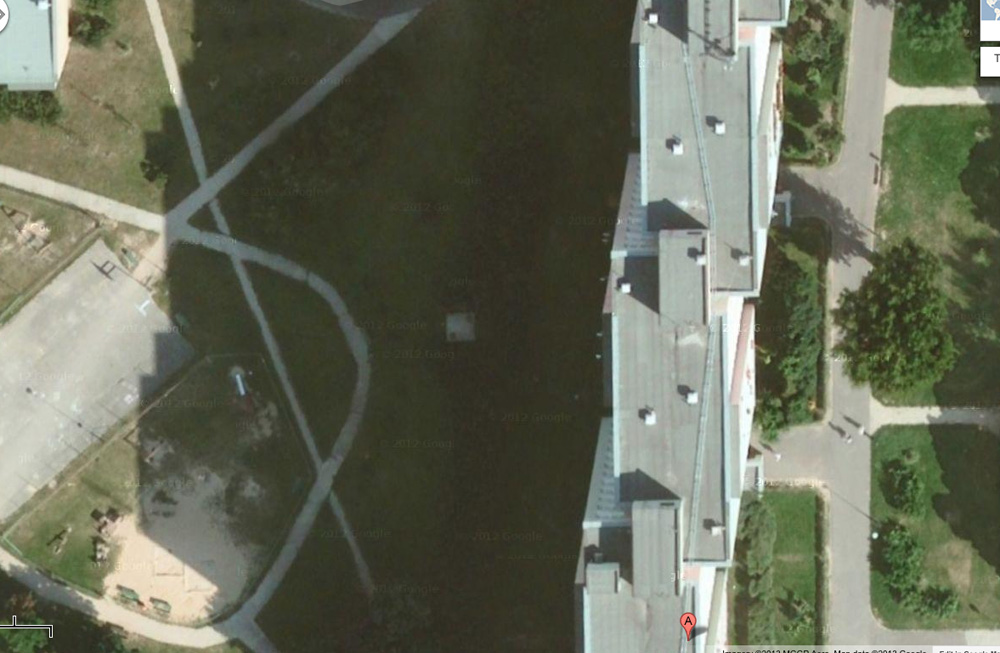
Dużo bardziej ekspansywny, w swoim zagarnianiu przestrzeni, okazał się kapitalizm, który oficjalnie nadszedł kiedy miałem dziesięć lat. Jestem bardzo wdzięczny za możliwość życia na pograniczu epok, pozwoliło mi to wiele zrozumieć, także wczuć się w sytuację ludzi których teraz na całym świecie fotografuję. To na tym osiedlu stałem w kolejce do kościoła po dary przysłane tirami z Holandii do dzikiego kraju na wschodzie. Puszka z czerwoną fasolą, małe puszeczki z szynką z indyka. Prawdziwe rarytasy, w biednej krainie za rdzewiejącą żelazną kurtyną.
Żyłem nie tylko na pograniczu epok, ale i światów. Oznaczony poniżej blok, miejsce gdzie spędziłem dzieciństwo, był ostatnim, był końcem miasta, dalej rozpościerały się pola, bajora, lasy. Tam gdzie widać teraz zielony dach autobusowego dworca było jeziorko, którego trzciny podpaliłem a potem “pomagałem” gasić strażakom, mając jakieś 8-10 lat. Cały ten beton, parkingi i domy, wyplute przez kapitalistycznego Molocha, bożka rozwoju, pokrywają miejsce gdzie po raz pierwszy eksplorowałem naturę. Na budowie tych osiedli zobaczyłem też pierwszą śmierć, i rozpacz siostry chłopaków przysypanych w ziemiance, którą wydrążyli sobie w górze piasku.
***
Much more expansive, in its appetite for space, was capitalism that officially appeared here when I was 10 years old. I am very grateful for possibility of living in transition time, on the edge of two eras, it allowed me to understand a lot, and to have some compassion for many of the people whom I am photographing now in developing countries around the world. This is here, in this barrio, I stood in a long queue to a church where gifts brought by wealthy Dutch Christians were distributed to poor dwellers of wild country in the East. Cans with red beans, tiny cans with turkey meat, real delicacies to us then, in the backward land behind rusting iron curtain.
I lived not only at the frontier of epochs, but also at the frontier of worlds. The block marked with ‘A’ on the map below, a place where I spent my childhood, was the last one, on the edge of the city, beyond it only fields, swamps and forests. In the place of green roofs of bus station on top of this picture, there was a large pond, and I set fire to its reeds and later “helped” the firemen to put it down. I was 8-10 years old at time. All this concrete, parking spaces, houses, all spit out by capitalist Moloch, god of development, they are in the place where I first explored nature. It is also here, when these houses were being built, that I saw my first death, and despair in the eyes of sister of boys swallowed by ground in which they carved their cave.
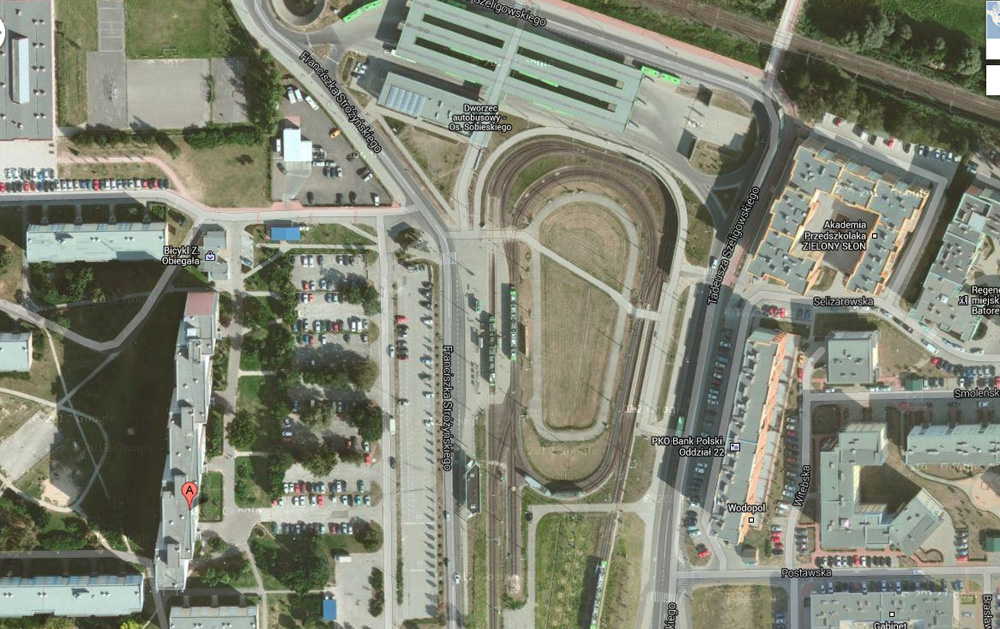
Świat powiekszał się coraz bardzej, i kolejne warstwy magii odsłaniał. Dalej były lasy, rzeka, rezerwat ze stawami w dziurach po meterotyach. Cały czas na pograniczu, miasta i lasu, cywilizacji i natury, w sercu blokowiska, gównianej komunistycznej uniformizacji, a jednocześnie co chwilę wśród roślin, na działce, jednej z ciekawszych ofert kontaktu z ziemią jaką mieszczuchom komunizm oferował.
Myślę, że nadal tak zostało, wciąż na pograniczach, ani tu, ani tam, tyle tylko, że te pogranicza się zmieniają. Często przychodzi taka myśl, że jedynie zmieniamy dekoracje, ale pozostajemy w gruncie rzeczy tymi samymi dzieciakami, że wciąż jestem tym co bawi się w Indian gdzieś na błotach pod miastem, wyobcowany z życia trolli zamieszkujących beton.
***
My world grew bigger and bigger and revealed new layers of magic. There were forests, river, a natural reserve with water filled holes made in the earth by falling meteorites. All this time in frontier land, on the edge of city and forest, civilization and nature, living in communist shitty blocks settlement, and at the same time spending a lot of time with plants, in nearby “workers plot”, one of the more interesting options offered by communist system to city dwellers desiring contact with land.
I think it stayed this way, I stayed this way, still in the border lands, neither here nor there, only that those borderlands change… I often think that we only change decoration, clothes, but we stay really the same, we are those kids, I am still the boy playing in mud outside city walls, alienated from the ordinary life of trolls living in the concrete jungle.
